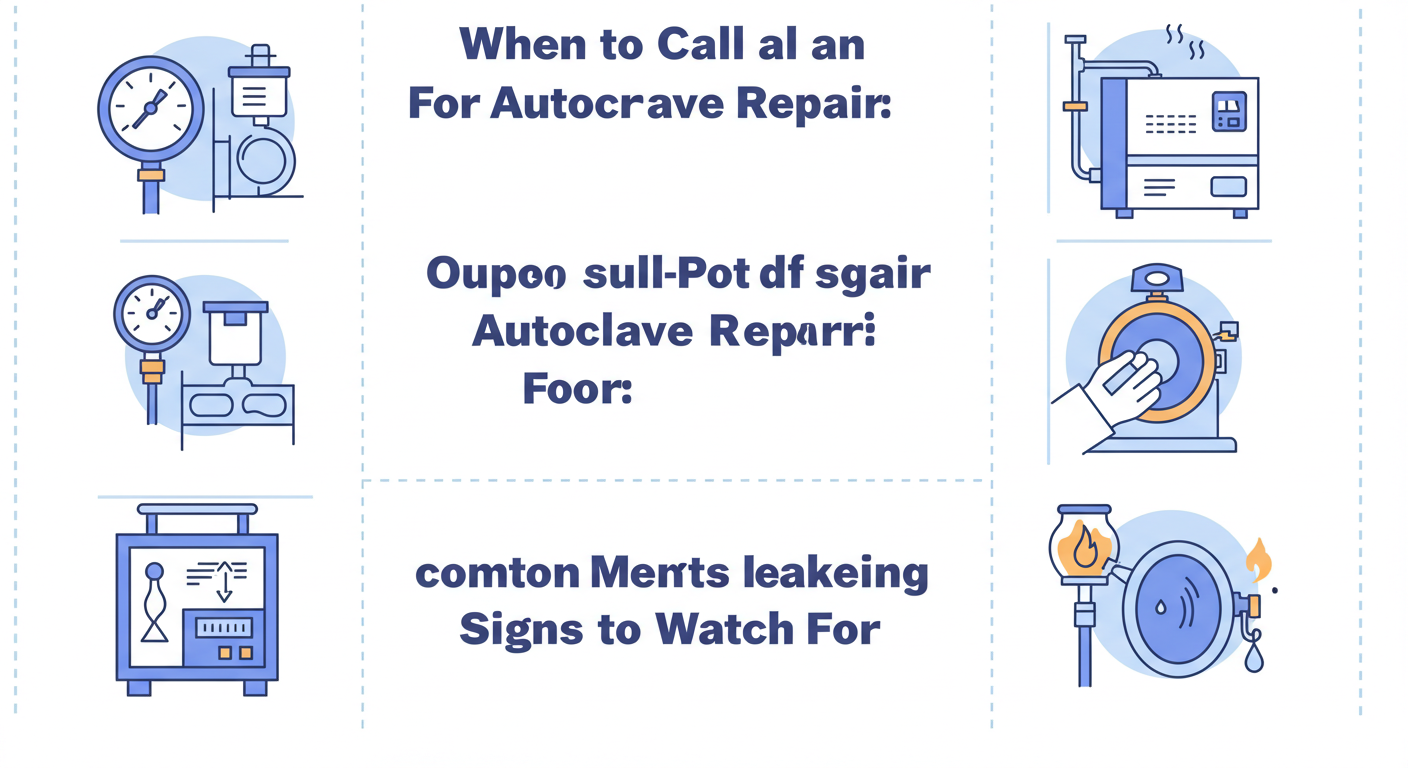Autoclaves are crucial in many industries, particularly in healthcare, laboratories, and research facilities, where sterilization is a key part of maintaining hygiene and safety. They ensure that equipment, tools, and even medical devices are free from harmful microorganisms. However, just like any piece of complex machinery, autoclaves can experience issues that require professional attention. Knowing when to call a professional for repairs is vital to ensuring your autoclaves continues to operate safely and efficiently. We will explore the common signs indicating the need for autoclave repair and the importance of timely intervention.
Unusual Noises During Operation
One of the first signs that your autoclave might malfunction is the presence of unusual noises during operation. While autoclaves typically produce noise as they pressurize and heat, any unexpected sounds such as grinding, buzzing, or banging could signal a serious issue. These noises may indicate problems with the internal components, such as a malfunctioning motor, faulty pressure valves, or worn-out seals. If left unchecked, these mechanical issues can worsen, potentially leading to costly repairs or complete failure of the machine. It’s essential to address such noises early by contacting a professional who can diagnose and fix the problem. They can assess whether the components need lubrication, repair, or replacement to restore the machine’s smooth operation.
Inconsistent Sterilization Results
Another crucial sign that your autoclave might need professional attention is inconsistent sterilization results. If you notice that items are improperly sterilized despite following the correct procedures, this could point to a malfunction in the machine’s sterilization cycle. Inconsistent results could mean the autoclave is not reaching the proper temperature or pressure levels necessary to eliminate harmful bacteria, viruses, or other pathogens. It’s important to address this issue promptly, as using an improperly functioning autoclave can lead to contamination and health risks. A professional can calibrate the system, check sensors and gauges, and ensure the autoclave operates optimally, restoring its ability to achieve consistent sterilization.
Failure to Reach Desired Temperature or Pressure
Autoclaves rely on high temperature and pressure to sterilize items; failure to reach these conditions can indicate an underlying issue. If your autoclave isn’t reaching the desired temperature or pressure during the sterilization cycle, this is a clear sign that something isn’t working correctly. Several factors could be at play, including a malfunctioning thermostat, pressure relief valve, or heating element. A failure in these components can lead to incomplete sterilization, posing a safety and equipment integrity risk. Contacting a professional to inspect and repair the autoclave is necessary to prevent further damage and ensure that it meets safety standards.
Excessive Leaking of Steam or Water
Leaks are another telltale sign that your autoclave might need attention. Excessive leaking of steam or water during operation could indicate a problem with the seals, valves, or gaskets. Over time, these parts can degrade due to wear and tear or improper maintenance. Leaking steam can affect the autoclave’s ability to generate the pressure needed for sterilization, while water leaks can cause corrosion and damage to the interior components. If you notice any steam or water leakage, it’s important to shut off the autoclave and consult a professional. Timely seals, valves, or gaskets repair can prevent further damage and ensure the autoclave operates effectively and safely.
Persistent Error Messages or Malfunctions
Modern autoclaves are equipped with digital controls and diagnostic systems that alert users to problems with error messages or malfunctions. If you frequently encounter error codes, system failures, or malfunctions that you cannot resolve, it indicates that professional repair is needed. These issues may be related to the internal control system, sensors, or electrical components, all requiring specialized knowledge to repair correctly. A technician with experience in autoclave systems will be able to run diagnostics, identify the root cause of the error, and perform the necessary repairs to restore functionality. Ignoring persistent error messages could lead to more significant problems that compromise the safety and efficiency of the machine.
Inability to Complete the Sterilization Cycle
When an autoclave fails to complete a full sterilization cycle, it is a critical problem that should not be ignored. A successful sterilization cycle involves specific steps, including heating, pressurizing, and cooling, followed by releasing pressure and steam. If the autoclave fails to complete these steps, it could indicate an issue with its internal components, such as a malfunctioning timer, pressure control system, or heating element. This malfunction can prevent the autoclave from sterilizing equipment effectively, a serious concern, especially in healthcare and laboratory environments. If your autoclave consistently fails to complete its cycle, it’s time to call a professional to diagnose and fix the underlying issue.
Recognizing when to call a professional for autoclave repair is crucial in maintaining the machine’s safety, efficiency, and longevity. Whether it’s unusual noises, inconsistent sterilization results, leaks, or electrical malfunctions, timely intervention can prevent further damage and ensure that your autoclave operates as intended. By understanding the common signs of malfunction and addressing them promptly, you can avoid costly repairs and ensure that your autoclave continues to perform effectively. If you notice any of the issues discussed, don’t hesitate to consult a professional to resolve the problem and maintain the safety and reliability of your autoclave.















